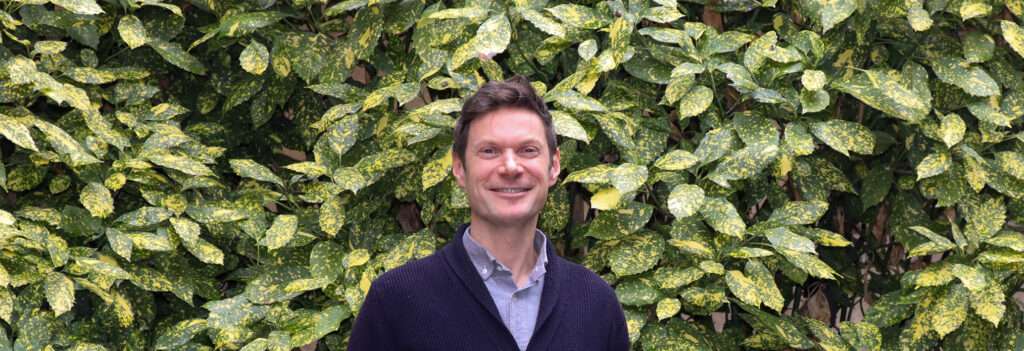Patrick Allard
Patrick Allard is a Professor at the Institute for Society & Genetic – University of California, Los Angeles (UCLA). His fellowship at the Montpellier Advanced Knowledge Institute on Transitions runs from 8 January 2024 to 8 July 2024.

Biography:
Patrick Allard, a Professor at the University of California, Los Angeles (UCLA) Institute for Society & Genetics, has an extensive academic background. He received his BSc from the University of Toulouse, France, and his MSc in the Biology of Aging from the University of Paris. He then completed a PhD in Biology at McGill University, Canada, and a postdoctoral fellowship in the Department of Genetics at Harvard Medical School. He joined the UCLA faculty in 2012.
Patrick Allard’s research lies at the intersection of genetics, epigenetics, developmental biology and environmental health. His laboratory uses model organisms and stem cell-based methods to study the effects of environmental toxicants on reproduction and transgenerational health. His work, which has been published in journals such as Proceedings of the National Academy of Sciences (PNAS), PLOS Genetics, Cell Reports and Environmental Health Perspectives, has received widespread recognition.
His contributions have earned him prestigious awards and grants, including the Burroughs Wellcome Innovations in Regulatory Science Award and funding from NIEHS, NIAAA and the Templeton Foundation.
Research interests :
- Chemical exposure;
- Arsenic;
- Cellular memory;
- Epigenetics
Project: Understanding and breaking the toxic legacy of arsenic exposure
I seek to better understand the long-term impact of man-made environmental contaminants on health. I aim to answer fundamental, yet unresolved, questions about the mechanisms by which environmental exposures lead to cellular dysfunction and disease. The focus of the studies will be on arsenic, a significant environmental contaminant that affects an estimated 140 million people in 50 countries, particularly the Global South, due to water, pesticide, and fertilizer contamination.
Why a fellowship in Montpellier?
Thanks to my fellowship in Montpellier, I will combine my expertise in Environmental Health and Toxicology with the expertise in Epigenetics from Giacomo Cavalli (Institute of Human Genetics, University of Montpellier) to investigate how exposure to arsenic leads to a molecular “memory” within cells that may be retained across the life course and precipitates disease. By better understanding how genetic and epigenetic information is impacted by arsenic, thanks to the tractability of the epigenome, this work will open the door to powerful pharmacological interventions.
Recent publications on Patrick’s academic profile include:
- Truong, L., Chen, Y.-W., Rio Barrere-Cain, Levenson, M.T., Shuck, K., Xiao, W., Eduardo, Panter, B., Reich, E., Sternberg, P.W., Yang, X. and Allard, P. (2023). Single-nucleus resolution mapping of the adult C. elegans and its application to elucidate inter- and trans-generational response to alcohol. 42(6), pp.112535–112535. doi:https://doi.org/10.1016/j.celrep.2023.112535.
- Anne Le Goff, Séverine Louvel, Henri Boullier and Allard, P. (2022). Toxicoepigenetics for Risk Assessment: Bridging the Gap Between Basic and Regulatory Science. Epigenetics insights, 15, p.251686572211131-251686572211131. doi:https://doi.org/10.1177/25168657221113149.